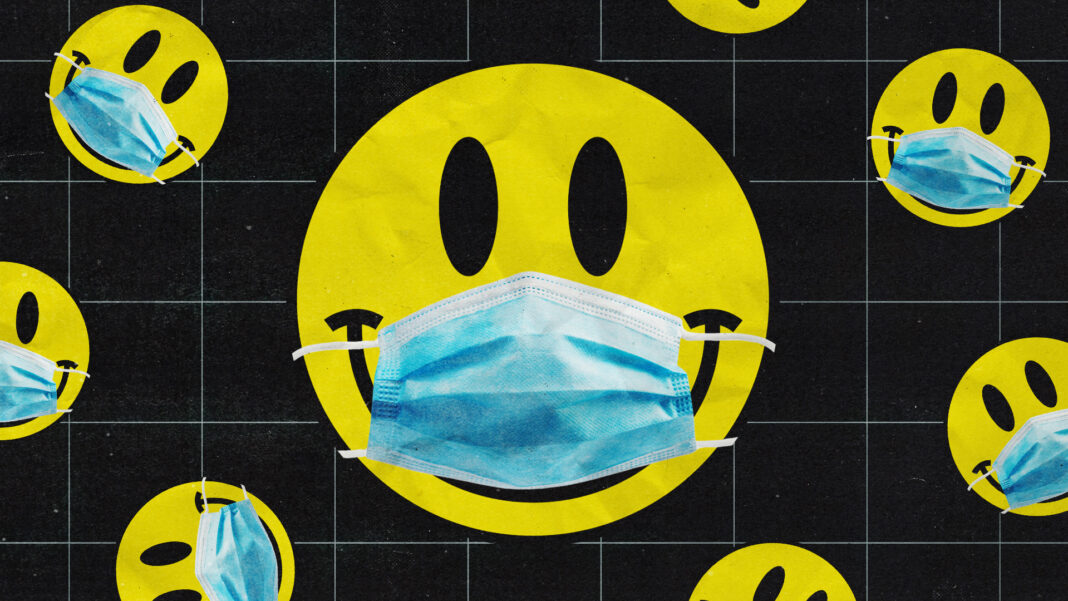“I want to quit taking cocaine now,” says Tina, 24. “I decided to stop drugs in the second lockdown to see if I can, which is probably a sign that I should.” Tina was taking “cocaine and sometimes ketamine” up to once a week in the first lockdown but is using Lockdown 2.0 to try and kick the habit. She’s not alone. The pandemic has caused many young people to reassess their relationship with drugs and alcohol.
The sale and consumption of both legal and illegal substances has significantly altered since the start of the COVID-19 pandemic. While alcohol sales have increased, hundreds of thousands have quit smoking cigarettes. Online party drugs forums have seen a marked drop in activity since the UK went into lockdown in late March and the demand for MDMA has reduced considerably since then. With pubs and clubs closed, who is still taking party drugs and why?
Some people are using drugs to bring the party back home, an attempt to recreate the feeling of being in a club from the kitchen or living room. Others have been using party drugs out of boredom or desire for escapism. Katy, 23, admits that for her it’s been a mixture of both.
“I’ve definitely been doing more drugs in the house and people’s kitchens, which is weird,” she says. “There was a period towards the end of the first lockdown in summer that I did them every week. It was summer in the city and we needed something to do to let off some steam. London Fields was rife.” Katy found that dealers have been more responsive and prices haven’t changed but that the quality is worse than pre-pandemic. When the 10pm curfew was introduced in September Katy would go to the pub with her friends and after last orders, they would think, “What now? Let’s go to someone’s house. People would then pick up because there isn’t much else to do, which is sad but also, we had to bring the fun and replicate normal life.”
Replicating normal life was also a reason that Michael, 25, gave for taking cocaine and MDMA since the start of the pandemic. “I think that doing drugs gives us a sense of occasion as well as taking us back to our past lives pre-pandemic,” he explains, “but it definitely became an unhealthy way of passing time and desensitising myself to the situation that we were facing. I think the environment of a club is just impossible to replicate at home – it’s all about the darkness, the lights, the blasting music and being surrounded by people you don’t know but might want to meet.”
For most people, getting so off your face that you forget where you are isn’t what they miss the most about clubbing. Instead, it’s the more tangible details – music so loud you can’t hear what anyone’s saying, dancing in a crowd full of strangers, chatting shit in the smoking area, getting off with someone whose name you won’t remember in the morning. We miss the anticipation, the outfits, the Uber ride, the sweat. None of that can be recreated just by doing a few bumps during a Zoom quiz.
Heather, 26, is eagerly anticipating the first post-COVID night out despite having recently decided to stop doing drugs. “I will be at a rave straight away,” they say. “I’ve tried to go to some in lockdown but they just get shut down.” Lockdown has given Heather time to reflect on why they used to take drugs pre-pandemic and they realised a lot of it was peer pressure. “I feel like taking drugs, for me, was about being around mates, but not being around friends made me realise I’m in control of saying no. I don’t think I’ll ever take cocaine again. I feel like my mental health is in a better place and I feel more myself than I ever have.”
Managing mental health in lockdown isn’t easy and in the spring, it was a huge period of adjustment. For many, substances helped ease the feelings of boredom and isolation and the looming melodramatic fear of wasting our youth. As much as everyone feared the bleakness of a winter lockdown, this time round many have found better coping mechanisms and everyone I spoke to said that they are drinking less and taking fewer drugs than in the Spring.
Ava, 22, also “considered giving up cocaine altogether at one point. Maybe it’s because I am more aware of my mood and my body and I know the negative effects of drugs and don’t want to do it to myself all the time anymore. Then again, I can’t be sure this would be the same if I was living with my friends instead of at home with my parents. I feel healthier in my body. I don’t miss the comedown and my mind is clearer but the negative impacts of loneliness and claustrophobia in lockdown dictate my health and happiness quite a bit.”
In life before the pandemic, nights out could help remedy loneliness and claustrophobia, even if it’s just the momentary release of a few hours on the dancefloor. We’ve all spent so long dreaming of post-corona partying that the euphoria and intimacy that party drugs usually facilitate will likely come naturally. That’s not to say that people won’t get carried away but for most of us, we’ve realised it’s the sweaty hugs not the drugs that we miss most.
Like what we do? Support The Forty-Five’s original editorial with a monthly Patreon subscription. It gets you early access to our Cover Story and lots of other goodies – and crucially, helps fund our writers and photographers.
Become a Patron!






